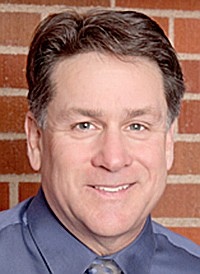In many instances, the traditional way of doing things in schools serves us well and should be respected. In other ways, however, because of changing needs, you will see schools in Arkansas and elsewhere make implementations that are a departure from the past.
One could make the argument (and many people do) that what was done in the 1970s and the 1980s "worked then and will work now."
Well, yes and no.
On the one hand, schools are a people business. Teachers are still teachers; parents are still parents; and students are still students.
But if we pretend that the world many of us grew up in is just like the world our children face today, we are making a big mistake.
In my own mind, I have a deep respect for history and for tradition, and I could be considered "old-school," but at the same time, my experiences in working in secondary school settings for 27 years lets me know clearly that schools need to adjust to changes in society.
That doesn't mean that any of us must approve of every societal trend (I mean, let's be honest here; there are many changes in the last 30 years that we don't all consider to be good).
But in education, if we are going to meet the needs of all students it requires that we at least acknowledge that those changes are real and that they have an impact on how a student approaches learning on any given day.
Some of those students come from a broken home and/or from a life of poverty (more often than was the case 30 years ago). Some students come from a background in which the importance of education has never been emphasized. And we can add to those concerns any of the ills of our culture that are commonplace today: crime, drug use, gang activity--the list goes on.
While those issues are not a problem in the life of every student, they affect enough of the students that it makes the job of all teachers more difficult.
To help ensure that teachers are equipped to reach all students, there are new efforts put in place constantly in our schools. Some of them are directed from state legislatures and some come from the state department of education. Some innovations are approved by local school boards and others may be orchestrated by building principals.
In fact, there are so many adjustments made and so many programs implemented that it sometimes creates added stress and frustration for teachers.
The intention is for all students to be successful but in the midst of added demands and pressures, educators occasionally lose sight of that.
They are very busy and work very hard, but sometimes they make the mistake of looking at a required innovative effort as a chore to complete rather than as a tool to help students.
Sandra Hurst, of the Arkansas Department of Education, touched on this when she spoke to principals on July 25 about supporting teachers and providing them valuable feedback.
"As educators," she said, "we are notorious for compliance and we are notorious for checklists."
She's right. Sometimes the mindset among teachers is to get principal directives done so they can get to the business of actually teaching.
But that mindset misses the point. The innovations that schools consider every year are not simply items to mark off a checklist, but they are strategies and efforts that constitute good teaching.
This is not to criticize teachers in any way but to underscore the idea that their job is extremely demanding. To do it right requires so much more than meets the eye.
Hurst, who was talking to principals at the Northwest Arkansas Education Service Cooperative in Farmington, addressed this when she was meeting with principals about an evaluation program in Arkansas called Teacher Excellence Support System (TESS).
TESS is an example of one of the aforementioned efforts that educators may simply wish to complete and cross off of their list.
But like any evaluation effort, it isn't intended to be a part of a checklist but as a way to help everyone get better. And Hurst said as much.
"TESS was meant to be a support system," she said.
TESS has the potential to be a great source of support for teacher growth but our teachers and school administrators need so much more; they also need each of us.
If we provide encouragement for them and show appreciation for all they do, educators can handle everything so much better in a job that becomes more challenging each year.
-- David Wilson, EdD, of Springdale, is a writer, consultant and presenter, who grew up in Arkansas but worked 27 years in education in Missouri. You may e-mail him at [email protected]. The opinions expressed are those of the author.
Editorial on 08/17/2016
